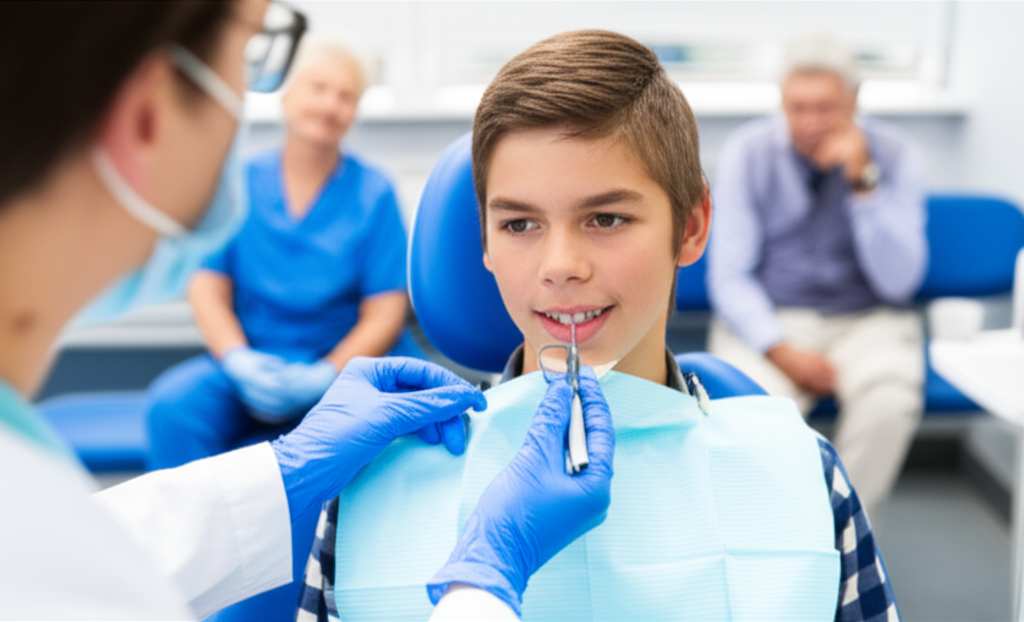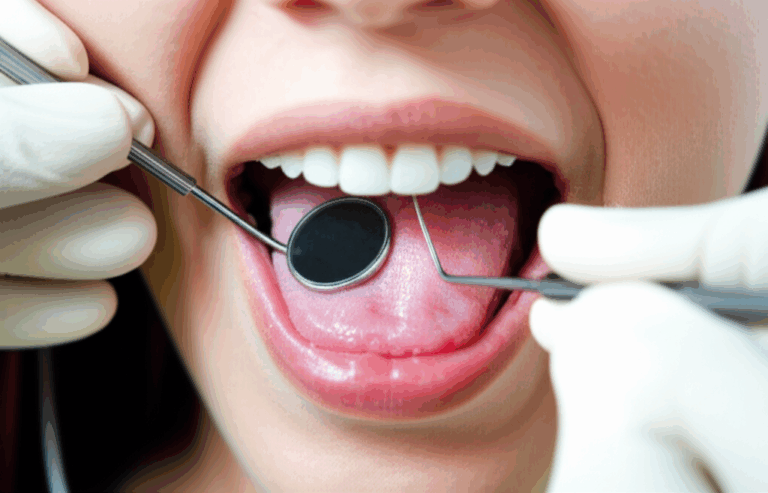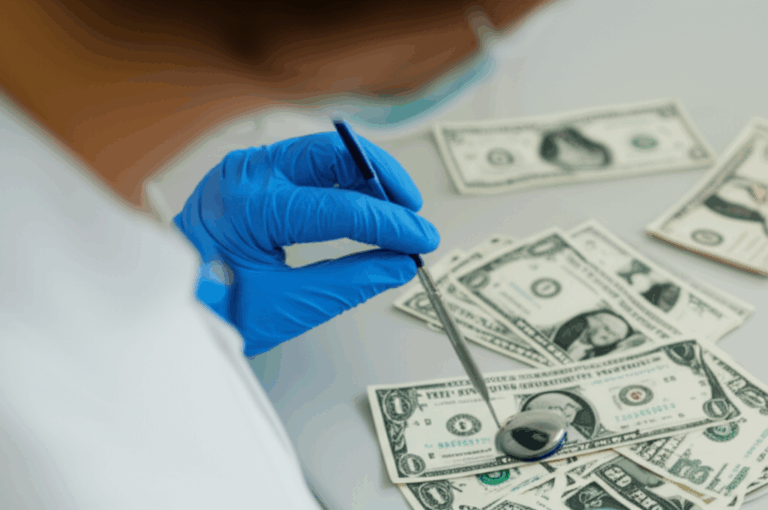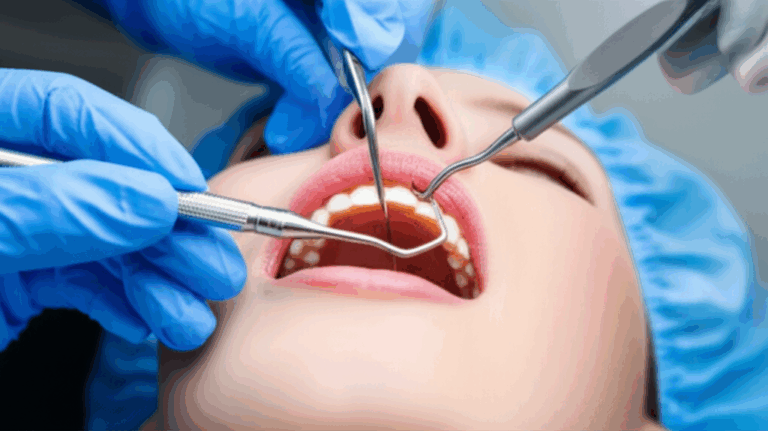
Can Dentists Tell Your Parents If You Smoke? Understanding Minor Patient Confidentiality
Table of contents
- The short answer
- How HIPAA treats minor privacy at the dentist
- State laws that change the rules
- The dentist’s ethics in real life
- Why dentists care about teen smoking and vaping
- How dentists spot smoking and vaping in an exam
- What to do if your dentist knows you smoke
- Key takeaways
- FAQs
The Short Answer: It Depends—Age, State Laws, and Circumstances Matter
I remember the first time a teen asked me, Will my dentist tell my parents I vape. The room went quiet. They wanted a clear answer. I wanted to respect their trust. The truth is easy to say but harder to live with. It depends.
Here’s the plain version you can use before your next appointment:
- If you are a minor, parents or legal guardians can usually see your medical and dental records under HIPAA. That means a dentist can often share information like smoking or vaping if a parent asks.
- State laws can change that. Some states give minors privacy for specific services. Getting help for substance use is usually in that group. General talk about smoking is usually not.
- Dentists try to balance ethics and safety. If your health is really at risk, a dentist might want to involve your parents. Most dentists want to talk with you first and get your okay. That way, trust grows.
So yes, sometimes a dentist can tell your parents. There are also rules and exceptions that keep some talks private. The details matter.
Navigating HIPAA and Minor Privacy Rights in Healthcare
What HIPAA Is and Why It Matters Here
HIPAA stands for Health Insurance Portability and Accountability Act. I think of HIPAA as the basic rule for health privacy. It protects your health information and says who can see it. For grown-ups, it’s simple. Your doctor or dentist keeps your information private unless you say it’s okay or there’s an exception.
For kids and teens, HIPAA is different. Usually, parents or guardians are seen as the minor’s “personal representative.” That lets them see their child’s health information most of the time.
How HIPAA Applies to Minors at the Dentist
This is what I tell teens and parents:
- Parents or guardians can usually see a minor’s dental records. Notes about smoking can show up in records, exams, or treatment plans.
- Dentists can talk with parents about what they found. For example, gum problems in a teen who smokes or dry mouth and sores from vaping.
- A dentist may ask about nicotine use to know the risks. That question is part of good care, not about judging.
This isn’t about catching you. It’s about doing the best job. Smoking or vaping changes how your mouth heals and handles treatment. Your dentist needs the full story.
Key Exceptions: When Minors Have More Privacy
A lot of families are surprised by the exceptions. HIPAA sets the rules for the country. State laws can give even more privacy. These exceptions usually are:
- Minor consent laws. In some states, minors can say yes to certain services on their own. That might be mental health, birth control, or substance abuse help. If you say yes to those by yourself, your records for those services are usually private from parents.
- Provider choice. Some rules let a health provider keep information private if telling the parent could hurt the minor. This doesn’t happen often and depends on the situation. Dentists are careful here.
- Emancipated minors. If a court says you’re emancipated or you meet your state’s rules, you get privacy like an adult.
A small detail trips people up. Smoking or vaping by itself is usually not under confidential substance use help. But if you go for a quitting program that is true substance use treatment, privacy rules can get stronger. The rules depend on where you live and the type of program.
State-Specific Laws on Minor Confidentiality: Beyond Federal Guidelines
Why State Law Can Change the Answer
I’ve seen the biggest privacy changes at the state level. One state lets minors make more health decisions. Another keeps most rights with parents. That doesn’t mean your dentist will always tell. But the legal rules do change.
What state law can change:
- The age when you can make your own health choices
- Which services you can get without parents
- Whether those are private from parents
- How records are shared
If you want a clear answer for where you live, call the dental office and ask about their minors’ privacy policy. Or check your state’s health department website. A quick call or search now can keep things clear later.
Is Smoking or Vaping Covered Under Confidential Services
I have never seen a state say plain smoking is a private service by itself. Formal substance use treatment does get extra privacy. If a teen is in a real addiction treatment program, those notes are usually hidden from parents. A normal dental visit is different. Notes about stained teeth, bad breath, or gum problems from smoking are part of regular care.
That’s why I tell teens to ask one clear question at check-in. “If I talk about nicotine use today, will that be private or can my parents see it in the record?” You deserve a clear answer.
Age of Majority and Emancipation: When Full Privacy Kicks In
When you hit the age of majority in your state, you control your records. In most states that’s 18. In some rare cases it can be younger if you’re emancipated. After that, your parents can only see your info if you say so or an exception applies. If you’re almost 18, your dentist still follows the minor rules. Turning 18 changes it.
The Dentist’s Ethical Considerations and Professional Judgment
Balancing Patient Trust and Parental Involvement
I’ve seen dentists struggle with this. A teen says they vape. The dentist finds gum problems and slow healing. The parent waits in the lobby and asks, “How did it go?” The dentist wants to protect trust. They also want to keep you healthy. Most begin with a respectful talk with the teen. They explain risks. They ask to involve the parent. They focus on helping, not blaming.
Why this works:
- Trust gets honesty. Honesty means better care.
- Parents can help with quitting and support.
- The goal is health, not getting you in trouble.
Duty to Warn vs. Patient Confidentiality
Dentists must act if someone is in real danger. This almost never happens with just smoking or vaping. It’s more for self-harm or if someone is in danger. Smoking and vaping usually don’t reach that level. You’ll probably get advice and support, not emergency telling.
Putting the Minor’s Health First
I ask dentists one question. What helps this teen’s health the most? The best answers sound like:
- I teach first and ask to involve a parent.
- I keep the focus on health, not blame.
- I write down what we talked about and the next steps.
- I bring in the parent if we need help for safety or big care decisions.
That’s care that puts you first, as much as the law allows.
Why Dentists Care: Oral Health Risks of Smoking and Vaping for Teens
I’ll be real with you. Dentists aren’t the nicotine police. They work to keep mouths healthy. Smoking and vaping make their job harder and your mouth worse. Here’s what I see in teens who use nicotine.
Immediate Problems: Bad Breath, Stains, and Gum Problems
- Bad breath. Smoke and dry mouth help the bacteria that stink up your breath.
- Teeth stains. Nicotine and tar stick on your teeth like coffee on a white shirt. Cleaning helps for a bit. Deep stains can stay.
- Gum swelling. Nicotine makes blood vessels smaller. Gums swell and bleed less, so disease hides. It looks calm while trouble grows.
- Dry mouth. Less spit means more cavities and slow healing.
- Sore mouth. Heat, chemicals, and flavors can bother your mouth lining.
If stains get real bad and a teen wants a better look, a dentist might talk about veneers as one option. That’s just covering damage, not fixing the real problem. If you want to learn more, read about veneers.
Long-Term Problems: Gum Disease, Cancer, and More
- Gum disease. Ongoing infection hurts bone and gums that hold your teeth. Teens who smoke can start losing bone early. That risk gets worse over time.
- Mouth patches and cancer risk. White patches called leukoplakia can show up. Most are harmless but some can turn into cancer. Tobacco ups that long-term chance.
- Slower healing after pulling teeth or surgeries. Less blood flow makes things worse.
- More cavities and tooth abscesses. Dry mouth plus more germs is trouble.
Down the line, big problems might mean you need crowns or bridges. That’s work done by a dentist and a special lab. If you’re curious, see what happens in a crown and bridge lab. My point isn’t to scare you—it’s to show where this can go if nothing changes.
Vaping and E-Cigarettes: Not Safe for Your Mouth
Vaping looks cleaner. It isn’t. Here’s what dentists see:
- Gum problems that don’t match the amount of plaque
- Mouth lining irritated by flavors and heat
- Changes in mouth germs that lead to disease
- Nicotine addiction that keeps you stuck
A lot of teens say they vape for stress. I get it, and so does your dentist. You still deserve to know the risks and get help to quit if you want to.
How Dentists Spot Smoking and Vaping in an Exam
You might wonder how dentists even know. Here’s what I’ve seen them look for:
- Stains on teeth and between teeth
- Swollen or tough gums with less bleeding
- Bad breath that won’t go away with brushing
- Dry mouth and lots of sores
- Slow healing after cleanings or having teeth pulled
- Irritation from vaping on the roof of your mouth or cheeks
- A cigarette or vape smell on you
They aren’t judging you—they need to know for your care. If a teen says they don’t use nicotine but the dentist sees signs, they still treat based on risks. Honest talks help everyone.
What to Do If Your Dentist Knows You Smoke
I’ve helped teens through this moment. It feels scary, but you have choices.
Start With a Clear Talk
Say something like:
- I want to talk about nicotine. Can you tell me your privacy policy?
- If we talk about my smoking or vaping, will that stay private or will my parents see it in my record?
- If you think my parents should know, can you help me talk to them?
A good dentist will slow down and explain. They’ll talk about HIPAA and your state rules, simply. They’ll explain your options. They won’t surprise you if they can help it.
If you want a dentist who’s good with teen privacy, look for someone who talks about confidentiality from the start: find a dentist.
Ask About a Step-by-Step Plan
Dentists who work well with teens often do it bit by bit:
- Teach first. Talk about risks and health problems.
- Offer quitting support. Share resources for stopping smoking or vaping.
- Set up follow-up visits. See how things go, without being mean.
- Involve parents if needed for safety or big treatments. Ask you first if possible.
If you want to quit but worry about privacy, ask for quitting programs that protect your information in your state. That can help a lot.
Get Help and Support to Quit
What worked for teens I know:
- One-on-one help from school or clinic counselors
- Quitlines or text support
- Apps to handle cravings
- Nicotine patches or gum (if safe and with help)
- A trusted grown-up to back you up
Tell your dentist what matters to you—sports, looks, money, braces. They’ll use that to help you.
Know Your Rights and Choices
Here’s a quick list you can use:
- Before your visit, call the office. Ask how they handle smoking and privacy for minors.
- When you arrive, ask to talk about personal stuff with the dentist alone.
- During your visit, ask what goes in your chart and who can see it.
- If your parents will be told, ask for help talking to them. You don’t have to do it alone.
- If your parents want to see your records and you think you have an exception, ask the office how they use state rules for teen consent.
You control more than you think. You can ask questions and ask for help.
Key Takeaways: When Privacy Matters and When Parents Might Be Told
- If you’re a minor, parents often have the right to see your dental records under HIPAA. Notes about smoking or vaping in a regular dental visit are often open to them.
- States might give young people more privacy for services like real substance abuse help. Most smoking talk in a normal dental visit does not count for this.
- Dentists want to protect trust and your health. Most will ask you before telling your parents unless they have to for safety or care.
- Smoking and vaping hurt your mouth now and later—bad breath, gum disease, stains, cavities, and slow healing are common. Over time, bigger problems can happen.
- You can ask about privacy before talking. Ask for help talking to your parents if needed. Ask for quitting support that matches your privacy.
FAQs
Q: Can a dentist report me for smoking
A: Dentists usually don’t report minors for smoking to authorities. Smoking by itself doesn’t trigger required reporting. If someone is at serious risk, the rules change, but smoking alone almost never meets that line.
Q: Do dentists have to tell my parents if I tell them I smoke
A: Not always. Under HIPAA, parents can often see a minor’s dental records. That means they can find out if smoking is written down in a regular visit. Rules change if a state gives you special rights or if the dentist thinks you’d be hurt by telling. Many dentists will try to ask you first.
Q: Can my parents access my dental records without my permission if I am a minor
A: Most of the time, yes. Parents are seen as your personal representative under HIPAA. Some state laws limit that for certain services minors can get on their own.
Q: What if I am almost 18
A: Until you hit the age of majority in your state, the minor rules apply. When you turn 18, you get privacy like an adult. If your 18th birthday is close, tell your dentist. You can plan what to talk about now and what to wait on.
Q: How do dentists know if you smoke
A: Dentists watch for clues like stains, bad gums, dry mouth, bad breath, and slow healing. They can often tell if nicotine is involved even if you don’t say it.
Q: What are the dental signs that a dentist looks for to know if someone smokes
A: Signs include yellow-brown teeth, weird gum changes, less bleeding, bad breath, dry mouth, extra plaque and tartar. Vaping can also show with irritated tissue and dryness.
Q: Is vaping different from cigarettes for my mouth
A: Vaping seems cleaner, but it still hurts mouth tissue, changes the germs in your mouth, and makes gums inflamed. It can also get you hooked on nicotine.
Q: Will my dentist refuse to treat me if I smoke
A: No. Dentists help smokers every day. They will still treat you and help you quit if you want to.
Q: Can a dentist’s staff talk to my parents about my smoking
A: Dental staff follow the same privacy rules. If parents can see your records, staff can talk to them about what’s in there. If an exception applies, staff shouldn’t share.
Q: If stains are severe, what cosmetic options exist
A: Dentists can try cleaning and whitening. Sometimes they might offer a veneer for a tooth or more. To learn more, here’s a simple primer. These fixes work best if you quit nicotine too.
Q: What if smoking has already damaged my teeth
A: Your dentist might suggest fillings, crowns, or bridges. Those need careful lab work. If you want to see how these are made, check out what a crown and bridge lab does every day. It’s easier and cheaper to prevent than to fix.
Q: Where can I get a confidential plan to quit
A: Ask your dentist for local help. Many states pay for hotlines or teen programs. If you enter a true substance use program, your records might be extra private. Always ask about privacy before you join.
—
One last note from me. I am not your lawyer or dentist. I wrote this to help you feel better about your visit. Rules change by state and office. For a sure answer about your situation, ask your dentist’s office to explain their rules for minors, HIPAA, and your state’s laws. You deserve to know before you talk.








